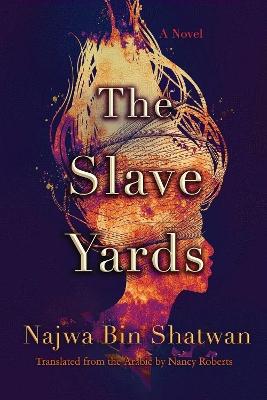Middle East Literature In Translation
1 total work
Set in late nineteenth-century Benghazi, Najwa Bin Shatwan's powerful novel tells the story of Atiqa, the daughter of a slave woman and her white master. We meet Atiqa as a grown woman, happily married with two children and working. When her cousin Ali unexpectedly enters her life, Atiqa learns the true identity of her parents, both long deceased, and slowly builds a friendship with Ali as they share stories of their past.
We learn of Atiqa's childhood, growing up in the "slave yards," a makeshift encampment on the outskirts of Benghazi for Black Africans who were brought to Libya as slaves. Ali narrates the tragic life of Atiqa's mother, Tawida, a black woman enslaved to a wealthy merchant family who finds herself the object of her master's desires. Though such unions were common in slave-holding societies, their relationship intensifies as both come to care deeply for each other and share a bond that endures throughout their lives.
Shortlisted for the 2017 International Prize for Arabic Ficiton, Bin Shatwan's unforgettable novel offers a window into a dark chapter of Libyan history and illuminates the lives of women with great pathos and humanity.
We learn of Atiqa's childhood, growing up in the "slave yards," a makeshift encampment on the outskirts of Benghazi for Black Africans who were brought to Libya as slaves. Ali narrates the tragic life of Atiqa's mother, Tawida, a black woman enslaved to a wealthy merchant family who finds herself the object of her master's desires. Though such unions were common in slave-holding societies, their relationship intensifies as both come to care deeply for each other and share a bond that endures throughout their lives.
Shortlisted for the 2017 International Prize for Arabic Ficiton, Bin Shatwan's unforgettable novel offers a window into a dark chapter of Libyan history and illuminates the lives of women with great pathos and humanity.
